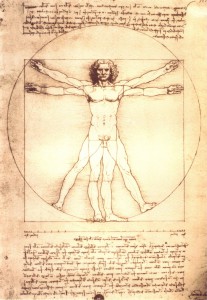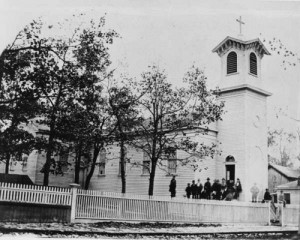Romans 8:1-22
Last week, we discovered that God’s law (the rules and commands given in the Bible) does not kill sin (all the bad stuff we do). It exposes and provokes the sin that lives in us so we’ll see how horrible our situation is and run to the Deliverer (Jesus). This passage examines what the Deliverer does.
Last week, we discovered that God’s law (the rules and commands given in the Bible) does not kill sin (all the bad stuff we do). It exposes and provokes the sin that lives in us so we’ll see how horrible our situation is and run to the Deliverer (Jesus). This passage examines what the Deliverer does.
Justification
The Deliverer justifies those who trust and follow him. To be justified means to be made innocent in light of the law. God sent Jesus in the likeness of sinful flesh to fulfill the requirements of the law for us, like the inventor of your favorite video game coming to your house to play the perfect game, logged in as you. His perfect fulfillment of the law can be transferred to you if you trust and follow him, accepting the gracious gift, allowing you to claim the promise that there is now no condemnation for those who are in Christ Jesus.
The Deliverer justifies those who trust and follow him. To be justified means to be made innocent in light of the law. God sent Jesus in the likeness of sinful flesh to fulfill the requirements of the law for us, like the inventor of your favorite video game coming to your house to play the perfect game, logged in as you. His perfect fulfillment of the law can be transferred to you if you trust and follow him, accepting the gracious gift, allowing you to claim the promise that there is now no condemnation for those who are in Christ Jesus.
But your sin must also be paid for. This is where the cross comes in. Many people live a counterfeit version of Christianity that does not require a bloody cross because they do not understand that their sin must be paid for, or else God is unjust. Jesus not only lived the life we’ve failed to live but also died the death we deserve, taking the condemnation for our sin. And he is the only one who could do it because he comes from outside the system, so to speak.
I get regular calls from people in need of emergency financial assistance. Part of the discussion I have with these folks is about their family and friends. Is there no one they know who can help them? The answer is invariably that all the people they know are in their same financial situation. They need someone outside their system to reach in and deliver them. In other words, as people aboard the same sinking ship cannot rescue each other, humanity cannot solve its own sin problem. We need a Deliverer from outside our system to make us innocent. We have that Deliverer in Jesus Christ.
Sanctification
The Deliverer doesn’t just set us free from the law of sin and death to leave us on our own. He also sanctifies us. If justification is being made positionally innocent, sanctification is being made practically innocent – transformed over time into the holy person that we already declared to be, like a baby growing into his new humanity.
The Deliverer doesn’t just set us free from the law of sin and death to leave us on our own. He also sanctifies us. If justification is being made positionally innocent, sanctification is being made practically innocent – transformed over time into the holy person that we already declared to be, like a baby growing into his new humanity.
How does the Deliverer do this? With the Holy Spirit. The law of the Spirit of life has set you free. What follows is a description of what these free people look like, presented in the form of three questions:
1. Is your experience with Christianity increasingly exhausting or exhilarating? (v.4)
The word flesh in this passage refers to our human nature apart from God in all its weakness and proclivity toward sin. The word Spirit refers to the Holy Spirit and connotes powerful wind. Think of it in terms of a row boat versus a sailboat.
Are you moving forward in following Jesus? If so, is your progression all work, like rowing a boat? Or are your sails filled with something supernatural, propelling you along?
2. Is your thinking increasingly drawn downward/inward or upward/outward? (v.5)
Is your thinking more naturally absorbed with the things of the world and the concerns of yourself or the things of God and the concerns of others? Nothing about the gospel pulls us downward or inward. It frees us to love God and other people like never before.
3. Is your life increasingly characterized by death or peace and liveliness? (v.6-7)
This refers to eternal death and life; but also to daily deathliness and liveliness. Are you experiencing a growing peace that is disconnected from your circumstances, founded in God himself? Or are you frail and deadened by going it alone? (See Galatians 5 for a more extensive look at the fleshly lifestyle versus the Spiritual lifestyle.)
But in all these things, remember: the Christian life is not a straight arrow toward holiness. It has ups and downs, mountains and valleys. So think overall trajectory when you evaluate yourself based on this passage. And run to the Deliverer!
Discussion Starters
1. What did you find most interesting/challenging about this passage?
2. What does it mean to be in Christ Jesus? (See Romans 6:3-11 and Galatians 3:25-28)
3. Work together to list what God does for us according to this passage.
4. Think through verses 3 and 4 together and put it in your own words.
5. Read verses 5-8: Do your thoughts increasingly draw downward/inward or upward/outward?
a. Is your life characterized by deathliness or peace/liveliness?
b. Is your experience of Christianity increasingly exhausting or exhilarating?
6. How can we serve one another in light of this passage?
7. How can your group pray for you this week?








